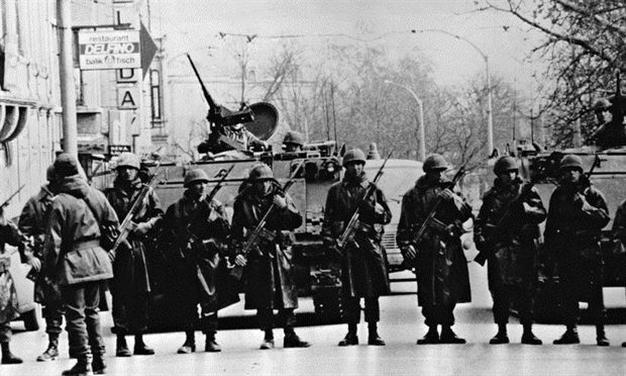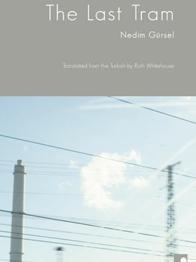The last tram in Europe
William Armstrong - william.armstrong@hdn.com.tr
 ‘The Last Tram’ by Nedim Gürsel, translated by Ruth Whitehouse (Comma Press, $15, 184 pages)
‘The Last Tram’ by Nedim Gürsel, translated by Ruth Whitehouse (Comma Press, $15, 184 pages)
At least since the great Nazım Hikmet died in Moscow in 1963, exile has had an elevated position in Turkey’s literary culture. The soil of exile was regularly watered before and after Hikmet fled the country in 1951, and in the wrong hands, “exile” can be self-regarding and pompous. There is certainly something self-consciously heroic about Hikmet’s literary character, but the fact that he was a poet of global significance justifies any pomposity. In the right hands, exile can be fertile artistic territory.
Nedim Gürsel was forced to leave Turkey after the 1980 military coup, and he has lived abroad in Europe in the decades since. Directly or indirectly, the wistful stories collected in “The Last Tram” all draw on his experiences away from his native country. They generally center on male central characters, lonely and away from home in various European cities, staring mournfully through strangers’ windows or waiting listlessly at train stations. During one of the stories, the narrator, surely a thinly veiled version of the author himself, states: “What I know about is absence; the endless geography of yearning. What I know about is trains passing through stations without stopping and the waiting rooms left behind.” The result is a collection of largely well-crafted, modest ruminations on memory, loss, and passing time; the perspective is self-conscious and autobiographical without being postmodern.
Some of the stories are more impressive than others, and a few include some cringeworthy purple prose, succumbing to the romantic ideal of the writer-in-exile:
In his tiny room, where there is no trace of his country, his past, or even his masochistic sense of being a writer in exile, he will make love with words until morning. Ever since he arrived in this town, this has been the only way he has managed to make love.
Love, you might guess, is another of Gürsel’s preoccupations, but the success of each story is generally inversely proportional to how much it dwells on that subject. Still, although there are plenty of clunky examples of self-regarding oversincerity, it probably wouldn’t be fair to dwell on them for too long - there are also plenty of better-judged moments.
The painful reality of time passing in absence is handled deftly throughout. In another openly autobiographical piece set long after the 1980 coup, the narrator receives a literary award for his remembrances of the city, penned in exile, “expressing, in an original and innovative style the tragedy of a generation, the turmoil created among intellectuals by the military regime, the fatal harm inflicted by an era of oppression.” Back in an Istanbul hotel to receive his award in what should be a moment of triumph, he is assailed by doubt and the sense that something irretrievable has gone: “Now alone, without optimism, he looks down on dear Istanbul. And he sees none of the places he had frequented and loved.” In Gürsel’s gloomy view, exile has given him a subject to scratch away at, but it has taken away even more.
 ‘The Last Tram’ by Nedim Gürsel, translated by Ruth Whitehouse (Comma Press, $15, 184 pages)
‘The Last Tram’ by Nedim Gürsel, translated by Ruth Whitehouse (Comma Press, $15, 184 pages) At least since the great Nazım Hikmet died in Moscow in 1963, exile has had an elevated position in Turkey’s literary culture. The soil of exile was regularly watered before and after Hikmet fled the country in 1951, and in the wrong hands, “exile” can be self-regarding and pompous. There is certainly something self-consciously heroic about Hikmet’s literary character, but the fact that he was a poet of global significance justifies any pomposity. In the right hands, exile can be fertile artistic territory.
At least since the great Nazım Hikmet died in Moscow in 1963, exile has had an elevated position in Turkey’s literary culture. The soil of exile was regularly watered before and after Hikmet fled the country in 1951, and in the wrong hands, “exile” can be self-regarding and pompous. There is certainly something self-consciously heroic about Hikmet’s literary character, but the fact that he was a poet of global significance justifies any pomposity. In the right hands, exile can be fertile artistic territory.